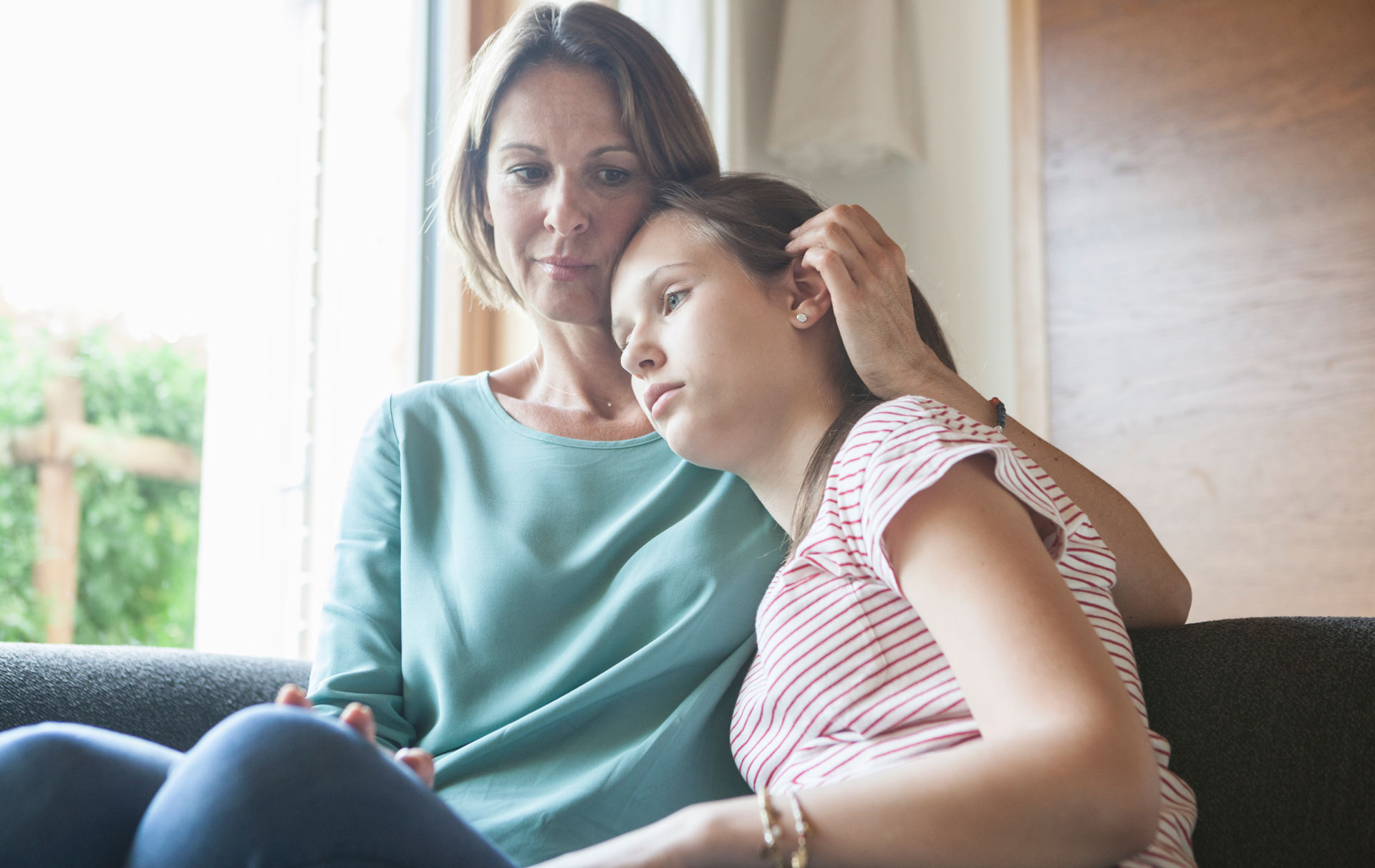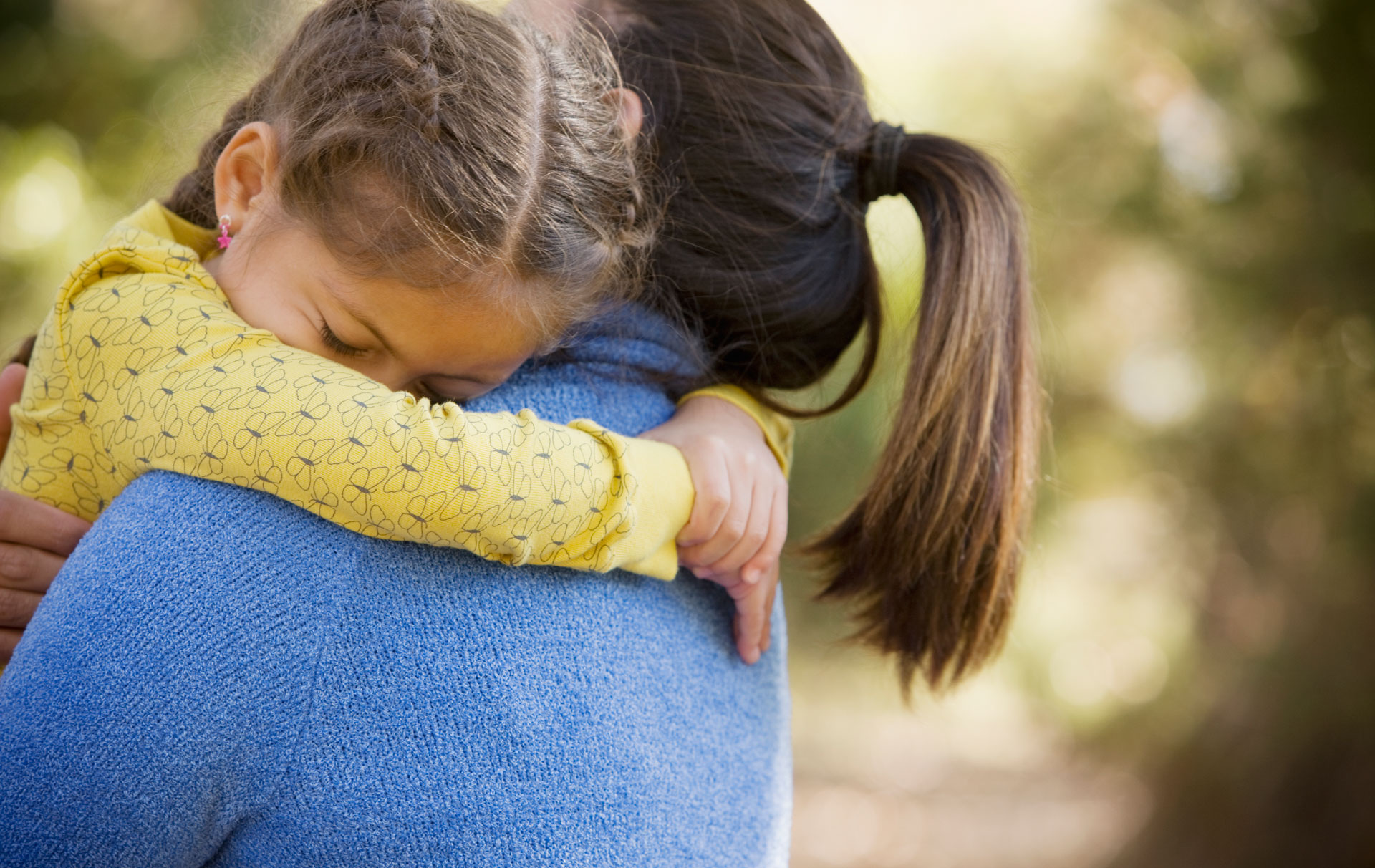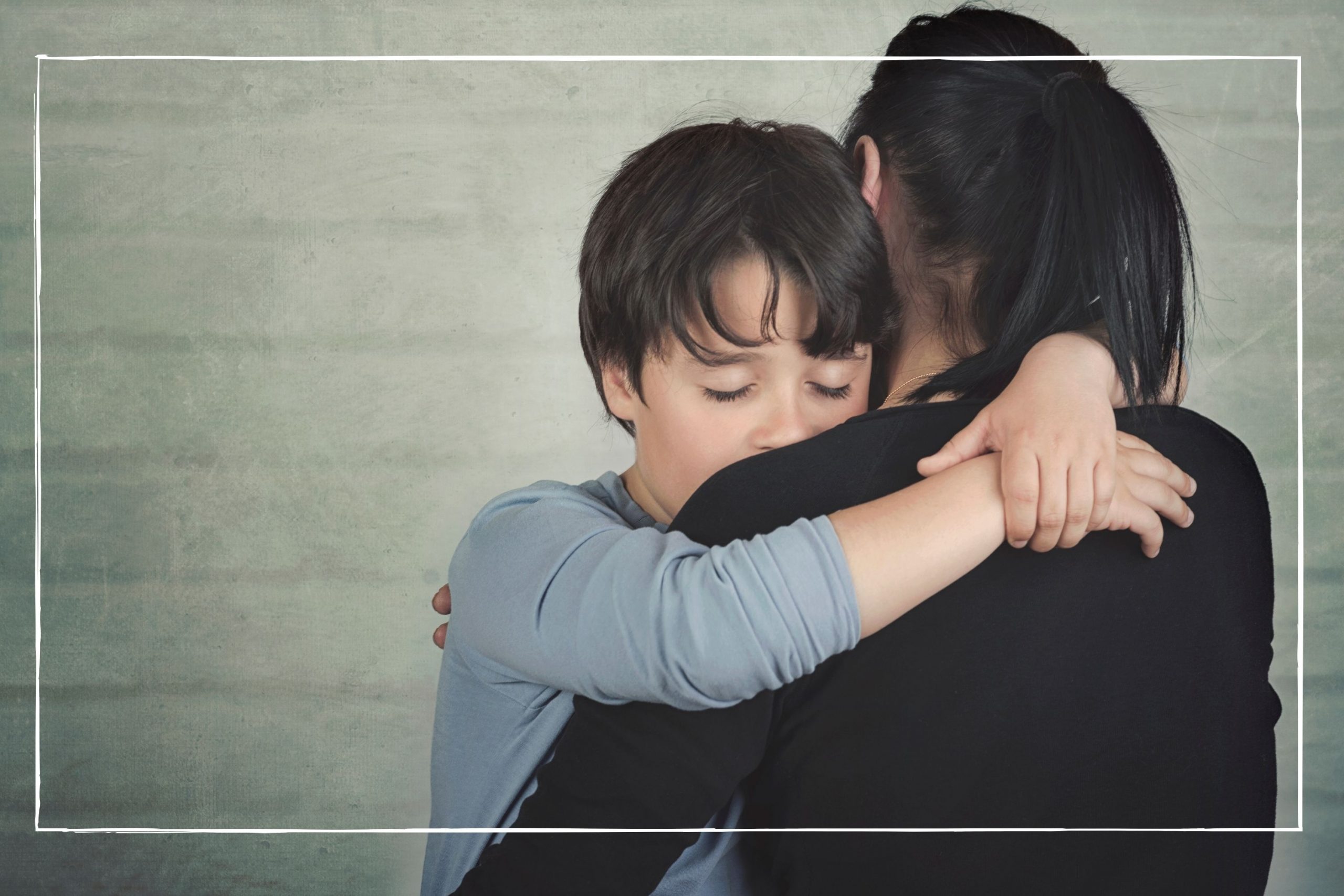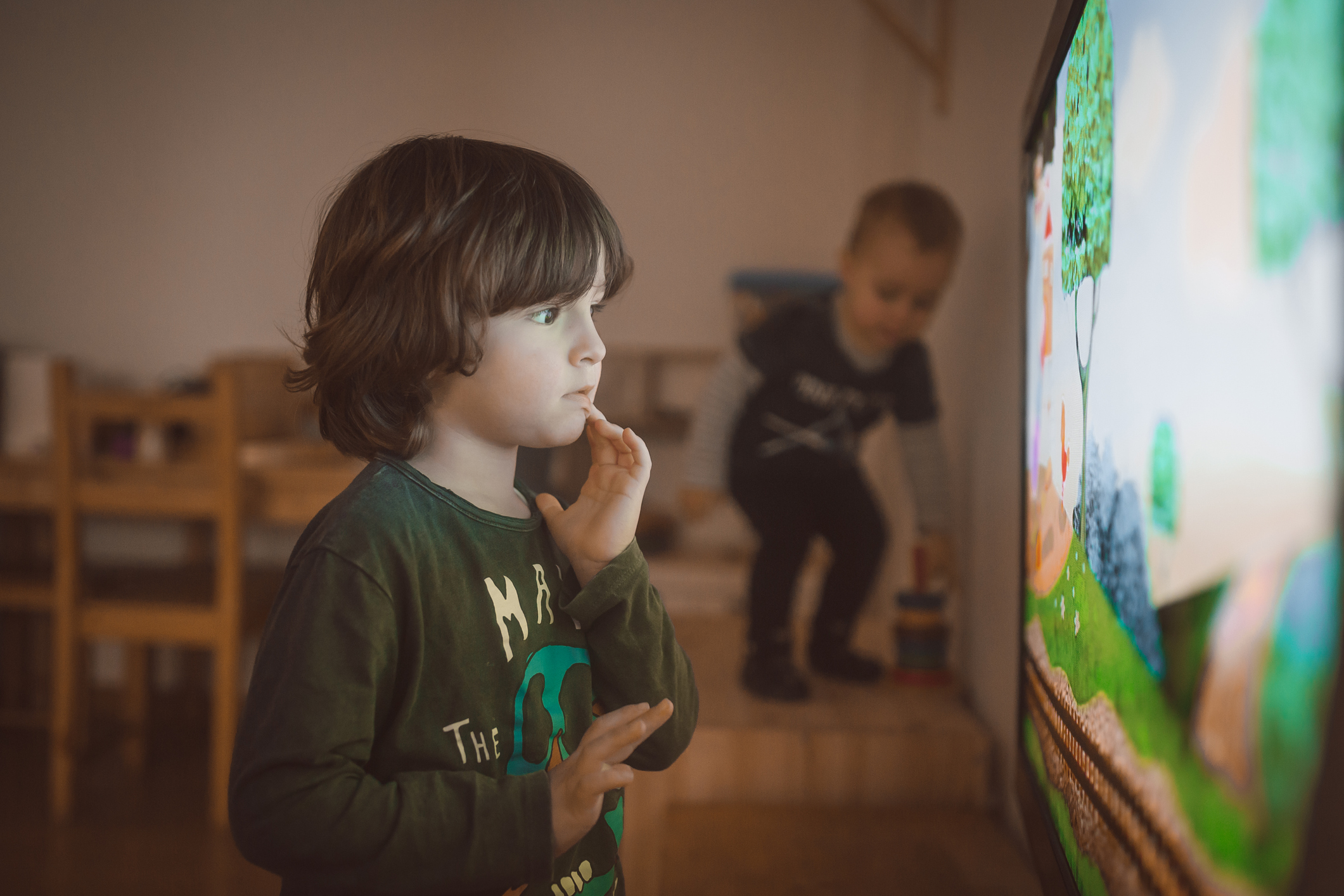Helping your child to grieve
Whether it's a parent, a grandparent or a beloved pet, here's what to do if the worst should happen

Helping your child to grieve can be a tricky thing for parents to tackle. Here are our best tips...
As parents, we want to protect our children from pain and sadness, but that's not always possible, and it isn't healthy either.
Experts now agree that it's far better for children to be included and involved in the grieving process than to be protected from it. So what's the best way to do that? Here's a plan to help...
Be honest and use simple language
Explain gently what has happened, but pick your words very carefully. Try to use the word 'dead' or 'died' rather than euphemisms, which may seem kinder, but are actually confusing. Slipped away/gone to sleep/gone to heaven/passed away, etc., don't give a clear enough explanation. If Granny has slipped away, when is she coming back? If she's gone to sleep, surely she will wake up?
The same applies to describing an illness. If you say 'Daddy had a heart attack', they may wonder who attacked his heart. 'Granny had a stroke' could also frighten them. If you stroke them at bedtime, will they die too?
WARNING: Well-meaning adults sometimes tell children their loved one is 'looking down on them and watching them.' Whilst their intention is to comfort the child, it often has the opposite effect.
Children don't want someone to see if they're being naughty or rude! Be careful if you talk about a dead person's spirit too. Children get spirits and ghosts mixed up. Who wants a ghost stalking them day and night?
GoodtoKnow Newsletter
Parenting advice, hot topics, best buys and family finance tips delivered straight to your inbox.
Don't worry if...

1. You cry in front of your child
It's perfectly OK to cry, and show children that you're upset, but make sure they understand why, or they may think it's their fault and get scared. 'I'm crying because I'm sad about Daddy', is all that's needed.
2. They don't seem very bothered
Some children, especially young ones, appear to take the news of a death 'very well.' By this, we mean they don't cry, or seem visibly upset. But don't let this initial reaction fool you into thinking they aren't bothered, because it's fairly likely they are, but don't know how to express it.
Look out for changes in behaviour - tantrums, bed-wetting, sleeping and/or eating problems and clinginess are all signs they're upset, but don't know how to say it.
Young children may complain of a tummy ache because physical pain is easier to describe than emotional pain. Others may behave unusually well. Older children may start doing badly at school because they can't concentrate.
REMEMBER: Children don't do long periods of sadness. Instead, they plunge suddenly and dramatically into 'puddles' of grief, during which they may cry and seem inconsolable. A few minutes later they jump out of the 'puddle' and ask if they can have a biscuit.
3. They ask awkward questions
'Will Daddy be back by Christmas?' 'Will Granny come to my birthday party?' 'Can I go and visit her in heaven?' Heartbreaking though it is, these are very common questions for children under 6 to ask, because they find it very difficult to understand that death is forever.
Gently remind your child what has happened. 'Daddy won't be coming back, sweetheart, because he has died. But he's in heaven/in your heart forever. Now do you want to talk about anything with me?'
Coping with a funeral
A family funeral is a very important event, and the days when children didn't attend for fear of them getting upset, are long gone.
However, don't be too casual about it. Make sure you've explained exactly what will happen beforehand, so they don't get any nasty shocks or surprises when they see the coffin or visit the cemetery.
Make sure they understand that it's a very special occasion, which may be sad and happy at the same time: 'It's sad because we miss the person who died, but happy because they aren't suffering anymore/are in heaven.'
Don't worry if the entire day passes without them shedding a tear, or if they misbehave, laugh, or tell you they're bored. These are all perfectly normal reactions.
Afterwards
Don't stop talking about a loved one because you don't want to upset your children, or you're frightened of breaking down in front of them. It will upset them more if they think you have forgotten.
Instead, talk about them in normal conversation, share funny stories, look at photos. Help them make a memory box containing precious things like postcards, photographs, letters, football tickets, etc.
Encourage them to write a story about what happened, or draw a picture. If they want to make birthday cards and Christmas cards for the person who died, let them.
Trusted, informative, and empathetic – GoodToKnow is the ultimate online destination for parents. At GoodtoKnow, our mission is 'simple': we're trying to make sense of parenthood. On the site, you'll find everything you need for a happy, healthy family life. Our huge archive of content includes more than 18,000 articles and 1,500 how-to videos. These include expert-backed advice features on parenting, dealing with relationship changes after having a baby, self-care for mums and managing your family finances. We also feature tried-and-tested product reviews and buying recommendations for every stage of family life - from prams and Moses baskets to birthday gifts and top toys.
-
 Talking about school shootings with your kids - tips from the experts
Talking about school shootings with your kids - tips from the expertsBy Stephanie Lowe Last updated
-
 How to talk to kids about coming out as gay, lesbian or bisexual: 6 expert tips for a supportive and empowering conversation
How to talk to kids about coming out as gay, lesbian or bisexual: 6 expert tips for a supportive and empowering conversationKnowing how to talk to kids about coming out as gay, lesbian or bisexual is important. These are The Proud Trust's top tips to get started.
By Grace Walsh Last updated
-
 How to talk to children about war, according to a child psychologist
How to talk to children about war, according to a child psychologistBy Stephanie Lowe Last updated
-
 Talking about periods with kids: 7 top tips with advice from the experts
Talking about periods with kids: 7 top tips with advice from the expertsBy Grace Walsh Last updated
-
 How to spot the signs of bullying and help your child if they are being bullied
How to spot the signs of bullying and help your child if they are being bulliedFinding out your son or daughter is the target of bullying is never nice, but what can you actually do to help?
By Sibelle Mehmet Last updated
-
 When and how to talk to your child about sex - plus top tips from child psychotherapists
When and how to talk to your child about sex - plus top tips from child psychotherapistsDoes your child have questions about the birds and the bees? Here's how to start talking about sex with your children, with expert advice to help you out.
By Joanne Lewsley Last updated
-
 What is autism? Everything you need to know about the spectrum disorder
What is autism? Everything you need to know about the spectrum disorderA helpful guide for parents
By Amy Hunt Last updated
-
 Overcoming fear: How can we prevent passing our fears onto our kids?
Overcoming fear: How can we prevent passing our fears onto our kids?An expert has their say
By GoodtoKnow Last updated